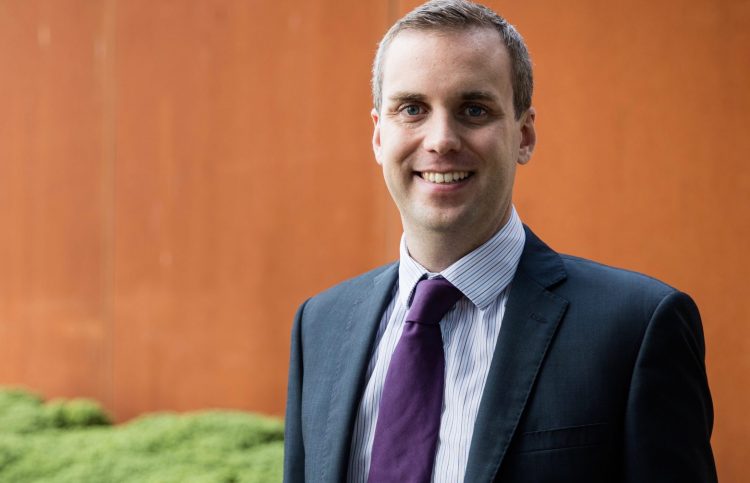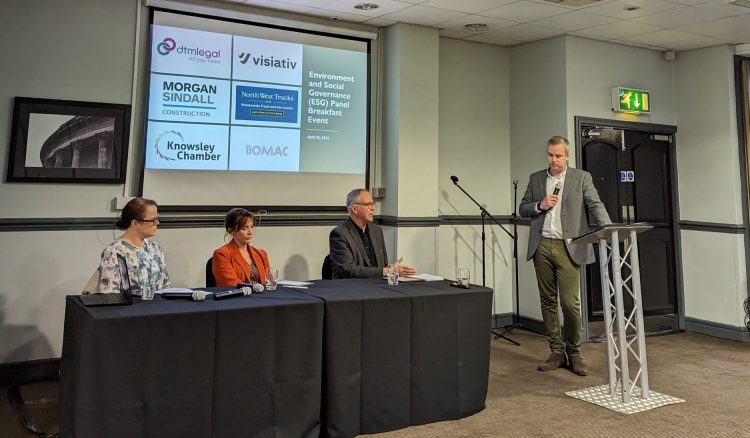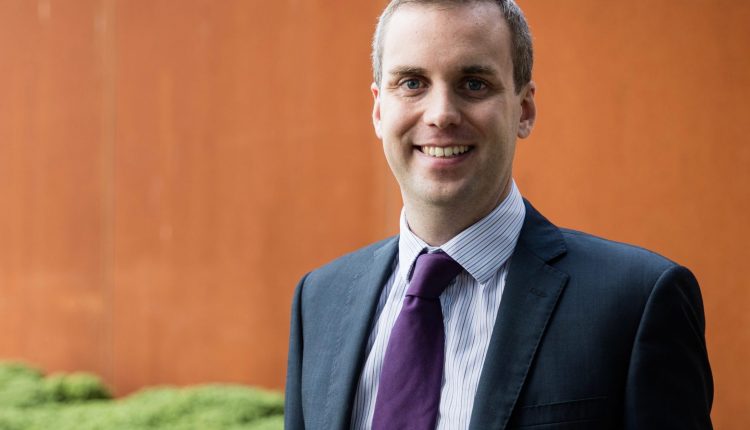ESG is ‘no longer optional’ says law firm
Embracing ESG (environmental, social and governance) is no longer optional but essential to business survival, Liverpool and Chester law firm DTM Legal tells LBN. Tony McDonough reports

Back in the early to mid-2000s corporate social responsibility (CSR) was too often just a minor bolt-on that had little or no impact on the core activity of a business.
It was, said DTM Legal partner Richard Harris, little more than a “box-ticking exercise” for so many companies and organisations.
Along with his colleague Alison Brennan, Richard leads the legal firm’s drive to ensure its ESG (environmental, social and governance) policies and procedures are ingrained in everything DTM Legal does.
“In the days of CSR, a company might have said ‘we do this or that’, have a little bit about it on their website and that was that,” said Richard.
“ESG is so much more. If you are a business and you want to survive and grow you really have to look at ESG and implement it as quickly as possible.
“This has accelerated post-pandemic and so much of it is being driven by the end customer. Whatever business you are in, your clients are now looking at things more widely. Yes, price is still important but they are looking at other things as well.
“They will ask ‘are you sustainable and do you have consideration beyond just profit?’. That has become important and if you are not doing it that is going to cause you problems as a business.
“Ultimately, without a strong ESG ethos, you are not getting the customers and not getting the work in. It really is that simple.”
DTM Legal was founded in Chester 15 years ago. In summer 2013 it opened its Liverpool office, in St Paul’s Square.
After hunkering down during the pandemic it emerged and embarked on a period of strong growth. It currently employs 75 people across the two offices and has 13 partners. Its main focus is on commercial work for firms of all sizes.
However, recently it has expanded into other areas. Richard explained: “Our background as a firm is very much in commercial work. We have worked with businesses from start-ups to plcs.
“The majority of our clients are based in the Liverpool city region and around Chester and we also act for clients nationally and internationally.
“But we have grown our offering and we now have a private clients team, a family team and a trust and estates team We work with owner-managed businesses and we might do something for their business and then they may need a trust setting up for their children, for example.
“Previously, we would have passed that out to other law firms but now we have the people in-house who can handle it. That can work the other way. We might help a high net worth individual set up and trust and they may ask us to help with their business.”
From the start DTM always had a strong focus on community engagement. Each year its staff support a nominated charity. These have included Zoe’s Place, Alder Hey Children’s Hospice, Claire House Hospice, Wirral MIND and, Nightingale House Hospice and for the last 12 months the Owen McVeigh Foundation.
But, as stated above, ESG is a whole new level. It is about putting a set of values and practices at the heart of your business model. ESG, says Richard, is certainly the right thing to do. And it also now makes sense from a hard-headed business perspective.
“In tender documents ESG is often one of the most important questions,” he added. “Do you have your policies and procedures in place? Do you have equality policies, gender policies, what are you doing externally?
“Just talking about your charity of the year is not enough any more. It is a much bigger challenge for businesses than CSR ever was. You actually have to implement it into your strategies and then provide evidence of what you are doing.
“Local authorities and public sector bodies, in particular, will look for strong ESG credentials when they are awarding contracts. If a business does not take ESG seriously they are going to struggle.
“And while there may be costs, ultimately there are benefits. ESG can lead to cost savings if you are running a business more sustainably.
“Most people will want to do the right thing most of the time anyway but from a strictly commercial point of view it makes sense. You are going to lose customers if you don’t do it.
“You also have to look at it internally. Recruitment and talent retention is a challenge for employers at the moment.
“People are looking at the salary but also at what the business offers as an employer – staff welfare, flexible working, and ethical and sustainable practices. And having good people is the basis of a good business.”
For an SME law firm demonstrating a commitment to cutting carbon in a visible way is more difficult. As Richard points out, an international firm can reduce things such as flights. But when you are only travelling between Liverpool and Chester, that doesn’t apply.
READ MORE: SysGroup CEO to step down after five years
READ MORE: Mersey Law firm scoops UK small business award
However, he said: “There are things we can do. For example, we encourage people to use public transport. We have Liverpool and Chester offices that are both close to Merseyrail stations.
“So we would always encourage people to use the train when travelling between our offices rather than drive. If there is a need to drive and there are a few of you going then all go in the one car.
“We also work with cycle to work schemes and have moved as far as possible to a paperless office. And we have been in discussions with Mersey Forest around tree planting. We also act for a number of housebuilders and we offer to plant trees on their sites.
“For a smaller businesses it is harder to measure but there are still things you can do. Involving your staff is really important.
“And it is not just about what we are doing within the firm but also looking at how we can spread the message among the wider business community.”


Buy-in from people within, and outside, an organisation for ESG is essential if the polices are to succeed. It’s essential businesses in the same supply chains work with each other to achieve sustainability goals.
Within DTM Richard says the team is very much on board with its mission. They understand, he adds, that ESG is good for them, for the firm and for the wider community.
They have provided mentoring to law students at local universities, supported educational programmes and work experience for high school and college age children, volunteered at local hospices and fundraised for local charities.
“We have a great buy-in from our colleagues,” he explained. “When it comes to picking a charity, for example, they play a full role in that decision. It is often about picking a charity that is personal to an employee.
“I think people are more aware of their wider responsibilities these days and want to get involved. They think a lot more about how they can reach out to other people and are very much aware of the importance of sustainability.
“Once you have your policies and procedures in place the challenge then is to maintain that momentum and actually continue doing these things. What will drive that, I believe, is the obligation to evidence what you are doing. A line on the website isn’t enough.
“In the past with projects there has always been a good start and then it may have tailed off. Customers now want to see you demonstrate your ESG credentials. If you can’t, they will take their business elsewhere.
“If you are asked for evidence of the work you have done you can’t just quote something from two years ago. You have to demonstrate what you are doing right now. ESG will impact your bottom line one way or another. Not doing it is no longer an option.”

